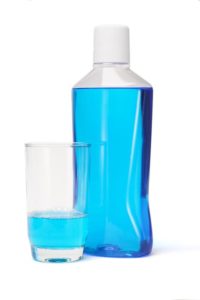Frequently Asked Questions About Mouthwash and Dental Health
 Preventive dental care encompasses a number of smart strategies, from periodic checkups and cleanings to home-based dental hygiene. However, if you still struggle with dental wellness despite these tried-and-true methods, you can always enhance your current regimen with the use of a germ-killing mouthwash.
Preventive dental care encompasses a number of smart strategies, from periodic checkups and cleanings to home-based dental hygiene. However, if you still struggle with dental wellness despite these tried-and-true methods, you can always enhance your current regimen with the use of a germ-killing mouthwash.
The more you understand about what mouthwashes do, how they do it, and how to use them productively, the better the results you can expect. Have a look at the answers to some frequently asked questions about mouthwash and its relationship to dental health.
How Do Mouthwashes Protect Your Teeth and Gums?
Different kinds of mouthwashes employ different methods to keep your teeth and gums healthy. Many brands use a blend of ethyl alcohol, eucalyptol, and menthol as antiseptic ingredients. These substances can make their way into the smallest gaps, killing bacteria that you might miss with your toothbrush or floss.
Other mouthwashes feature a potent antibacterial agent called chlorhexidine. This substance actually binds to tooth and gum surfaces to block bacterial infiltration. Your dentist may recommend this mouthwash for a brief period (usually one to two weeks) immediately following gum surgery or other dental work.
What Other Benefits Do Mouthwashes Offer?
Some mouthwashes include additional ingredients that provide extra oral protection against bacteria. For instance, you may see several brands of mouthwash that contain enamel-strengthening fluoride. Research indicates that kids who use mouthwash with fluoride get less than half as many cavities as kids who don’t receive this extra fluoride.
Many people use mouthwash simply to freshen their breath. This benefit, however, goes beyond the merely cosmetic. The same oral bacteria that can cause tooth decay and gum disease can also cause bad breath. The fresher breath you get from an antibacterial mouthwash also serves as evidence that the mouthwash kills germs.
Why Do Mouthwash Users Still Need to Brush and Floss?
No matter how effectively mouthwash may kill oral bacteria on contact, it cannot substitute for brushing and flossing as your primary preventive dental care strategy. Brushing physically removes the food particles and plaque that might otherwise harden into tartar, while flossing removes this material from areas beyond a toothbrush’s reach.
You should always brush and floss thoroughly before using mouthwash. This initial step gives the mouthwash that much less bacteria to contend with. It also helps ensure that the applied mouthwash makes direct, unimpeded contact with the oral tissues (instead of simply bathing a top coating of plaque).
What Side Effects Can Mouthwash Cause?
A variety of studies have examined mouthwashes’ potential for raising the risk of various kinds of oral cancer. The principal concern involves the use of ethyl alcohol (a known carcinogen) as a key ingredient in many popular products. However, no conclusive evidence shows an elevated oral cancer risk in normal, recommended dosages.
One study revealed that poor dental hygiene more than doubled the risk for oral cancer among people who used mouthwash more than twice a day. However, these individuals’ vulnerability may have hinged on their neglect of their teeth and gums. If you have concerns, ask your dentist to recommend alcohol-free mouthwashes.
Mouthwashes that contain chlorhexidine occasionally leave yellow or brown stains on some people’s teeth. Fortunately, your dentist can remove these stains in the course of a professional cleaning. In the meantime, avoid foods and beverages that might aggravate the staining effect while you use chlorhexidine mouthwash.
Our experienced team at Apollo Dental can advise you on what kind of mouthwash to use and how to add it to your complete dental hygiene plan. Contact our Rochester office with any questions or to schedule your next exam and cleaning.

